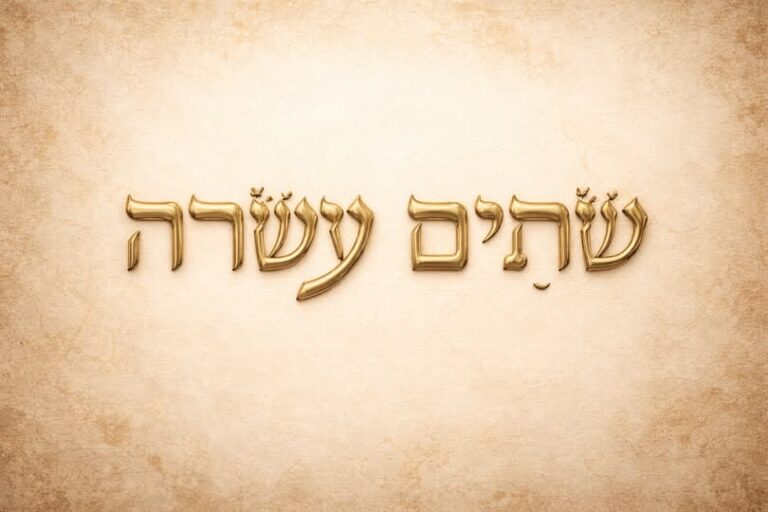
The translation of Luke 21:36 varies significantly between the King James Version (KJV) and most modern translations. This is not merely a matter of language style or vocabulary. The divergence stems from distinct manuscript traditions and carries theological weight, particularly in how the verse has been used to support Pre-Tribulation Rapture theology. When we examine the Greek text and the broader biblical narrative, it becomes clear that the KJV’s rendering is based on a textual variant that leads to a distorted interpretation of Jesus’s warning.
The Divergence in Translation
Luke 21:36 appears near the end of Jesus’s discourse on the signs of the end and the coming judgment. It serves as both a warning and an exhortation to those who would face the upheaval ahead.
The King James Version reads:
“Watch ye therefore, and pray always, that ye may be accounted worthy to escape all these things that shall come to pass, and to stand before the Son of man.”
The English Standard Version, along with most modern translations, reads:
“But stay awake at all times, praying that you may have strength to escape all these things that are going to take place, and to stand before the Son of Man.”
At first glance, these translations might seem similar in tone. Both call for vigilance and prayer. However, the difference between “be accounted worthy” and “have strength” reflects a deeper contrast in theological emphasis and textual origin.
Greek Terms and Manuscript Traditions
The Greek term used in the KJV is axiōthēte, which means “to be accounted worthy” or “to be deemed worthy.” This rendering comes from the Textus Receptus, a Greek text compiled during the Reformation using a limited selection of later Byzantine manuscripts.
By contrast, modern translations rely on the term katischusēte, meaning “to have strength” or “to prevail.” This reading comes from earlier Alexandrian manuscripts, including Codex Vaticanus and Codex Sinaiticus, both dating from the fourth century and considered by most textual scholars to be more reliable due to their antiquity and textual consistency.
The difference between these two terms is significant. “Be accounted worthy” suggests an external judgment in which a person’s status is evaluated and approved by God. “Have strength,” on the other hand, implies internal fortitude, the ability to endure, resist temptation, and remain faithful during coming trials. These are not interchangeable ideas. They reflect fundamentally different theological frameworks.
The Context of Luke 21
To understand which reading is more consistent with Jesus’s intent, we must consider the context. Luke 21 is part of a longer discourse often compared to Matthew 24 and Mark 13. In it, Jesus warns of wars, earthquakes, famines, persecutions, and the collapse of political and religious structures. He tells His followers to remain alert, to avoid being weighed down with the anxieties and vices of the world, and to be ready for the day when He returns.
The surrounding verses emphasize vigilance, readiness, and active spiritual discipline. Verse 34 warns against letting one’s heart be dulled by dissipation and drunkenness. Verse 35 describes the coming tribulation as a snare that will come upon the whole earth. In that context, the instruction in verse 36 is not about hoping to be judged worthy enough to escape, but rather about cultivating the spiritual strength necessary to stand firm when those trials arrive.
The variant reading in the KJV introduces a passive element. One either is or is not deemed worthy. The critical text, by contrast, calls the believer to take an active role in remaining awake, praying, and preparing for what is to come.
Theological Consequences of the KJV Reading
Over time, the KJV’s phrase “be accounted worthy” has become a cornerstone for certain eschatological systems, especially within Pre-Tribulation Rapture theology. According to this view, believers who are found “worthy” will be removed from the earth before the period of tribulation begins, sparing them from suffering and judgment. This interpretation relies heavily on the assumption that worthiness is something granted by divine judgment before the tribulation begins.
However, that reading raises several problems. First, it conflicts with Jesus’s repeated warnings throughout the Gospels that His followers would face suffering, persecution, and hardship. In John 16:33, Jesus says plainly, “In this world you will have tribulation.” In Acts 14:22, Paul tells new believers that “through many tribulations we must enter the kingdom of God.” The New Testament does not promise escape from suffering. It promises the presence and strength of God within it.
Second, the KJV reading implies a separation among believers based on an undefined standard of worthiness. This can lead to anxiety, speculation, or even pride. Who will be counted worthy? What qualifies someone? Such questions shift the focus from Christ and His calling to human status and qualification.
Why Modern Translations Restore the Original Meaning
The restoration of the reading katischusēte in modern translations is not a product of theological bias or modern liberalism. It is the result of textual criticism, a scholarly discipline that evaluates the history of biblical manuscripts to determine the most likely original wording of the text.
The reading “have strength” better fits both the earliest manuscripts and the overall message of Jesus’s discourse. Rather than promoting a theology of exemption from suffering, it calls the believer to endure faithfully and to pray for strength in the face of coming distress.
This reading also aligns with the consistent New Testament theme of perseverance. The Christian life is described repeatedly as a race, a battle, a journey requiring endurance, faithfulness, and prayerful watchfulness. Luke 21:36, when properly translated, becomes one more call to that same spiritual readiness.
Why This Matters
Translation choices are never neutral. They reflect not only linguistic differences but also theological implications. In the case of Luke 21:36, the KJV’s choice has contributed to an eschatological framework that emphasizes escape over endurance, status over struggle, and separation over perseverance.
Re-examining this verse helps clarify what Jesus was actually commanding. He was not offering a hidden promise that some would be raptured before trouble comes. He was urging all His followers to stay spiritually awake, to pray without ceasing, and to seek the strength to remain standing when the world begins to collapse around them.
Conclusion
The difference between “be accounted worthy” and “have strength” is more than a matter of wording. It reflects two distinct understandings of what Jesus expects from His followers. The KJV, based on a later textual tradition, introduces a passive idea of divine approval. The critical Greek text, supported by the earliest manuscripts, preserves Jesus’s call to active faithfulness and spiritual endurance. Luke 21:36 is not about being chosen to escape. It is about preparing to stand.
Discussion Questions
- How does the translation choice between “be accounted worthy” and “have strength” shape our understanding of what Jesus expects from His followers?
- What theological risks arise when doctrines are built upon later manuscript traditions like the Textus Receptus?
- Why is it important to examine both the context and the Greek text when interpreting difficult or disputed passages?
- How can an emphasis on endurance rather than escape prepare Christians better for real-world trials and persecution?
- Should differences in manuscript traditions influence which Bible translations we use for study or teaching?
Want to Know More?
- Bruce M. Metzger, A Textual Commentary on the Greek New Testament
This essential reference from the editor of the Nestle-Aland and UBS Greek texts provides detailed explanations for major variants, including the manuscript support behind readings like those found in Luke 21:36. - Philip W. Comfort, New Testament Text and Translation Commentary
Offers verse-by-verse coverage of key textual variants across the New Testament, explaining manuscript support and how decisions in modern translations are made. - David Alan Black, New Testament Textual Criticism: A Concise Guide
An accessible introduction to how scholars weigh manuscript evidence. It helps readers understand why modern translations often differ from the King James Version. - James R. White, The King James Only Controversy
A well-documented critique of the Textus Receptus tradition, explaining how certain renderings like “be accounted worthy” emerged and how they affect theology. - Kurt Aland and Barbara Aland, The Text of the New Testament: Its Transmission, Corruption, and Restoration
A foundational academic work on the history and science of New Testament textual criticism, offering insight into how scholars determine the most authentic readings of difficult verses.




